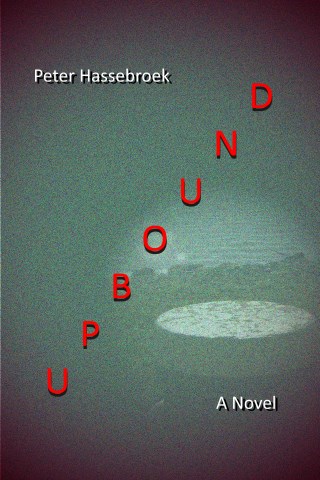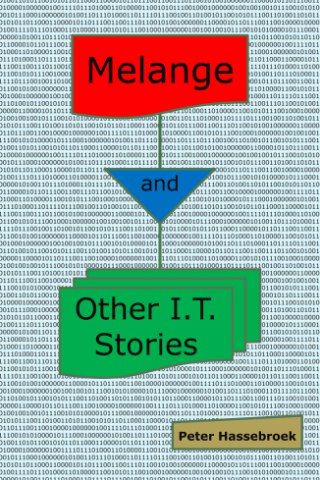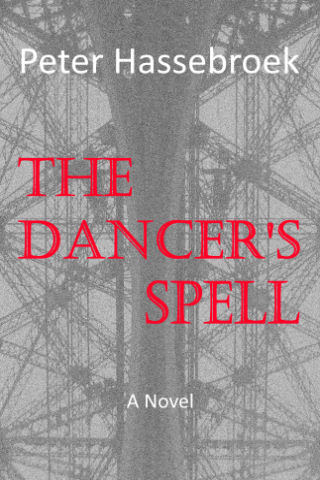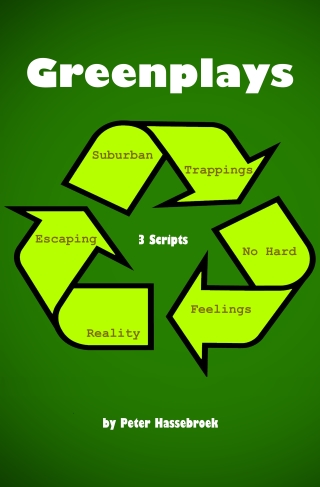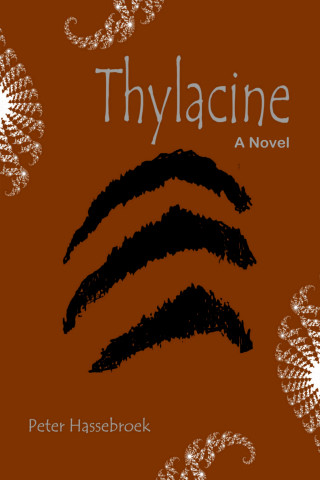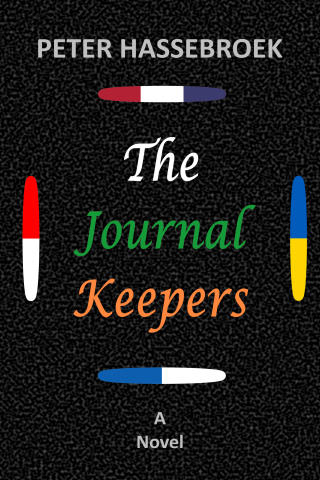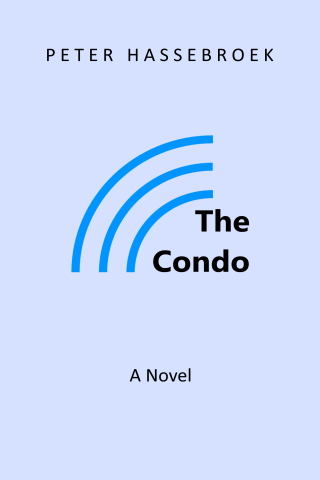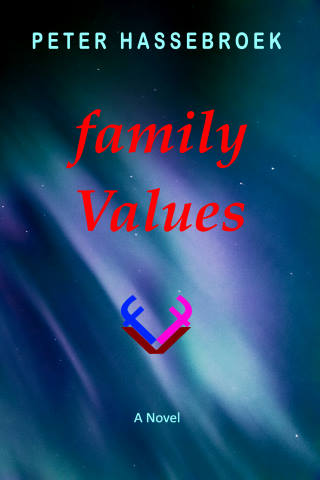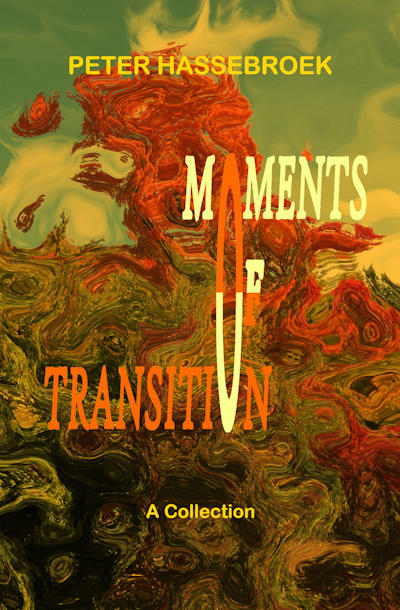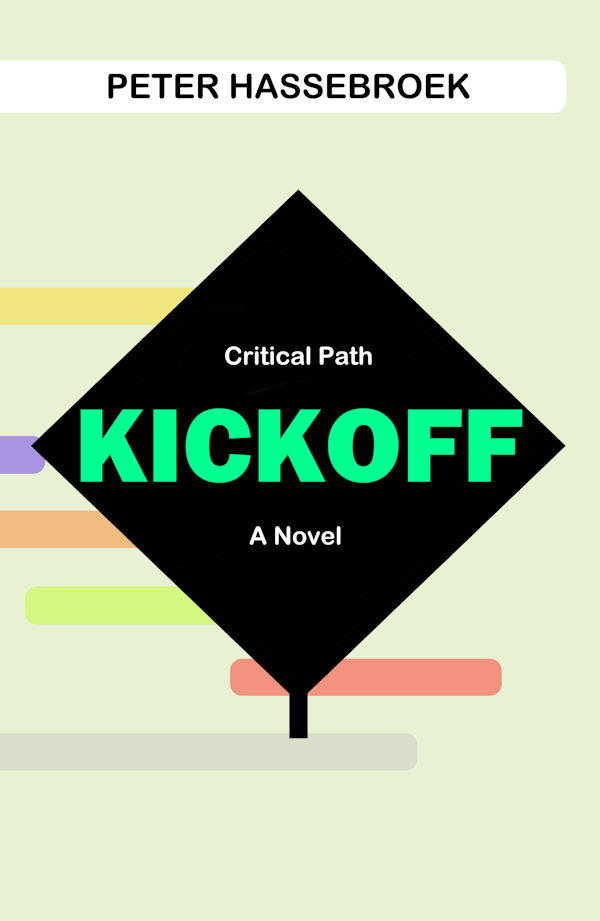Evolution of a Novel

At some point while writing Kickoff, I decided to make it a three-part series called Critical Path. Follow along every other month for a candid inside look as the second novel comes to life.
Sign up for my newsletter, Obscurity Knocks, for future updates, news, giveaways, and a promotional copy of Moments of Transition.
Episode 1 (December, 2024)
Early Choices and Challenges
There are benefits to beginning a sequel in terms of having an established environment, set of characters, style, and format. In my case, also an in-progress scenario: the unchangeable Y2K deadline. A solid foundation on which to expand an already clear direction.
However, choices made in an earlier novel can restrict creative freedom for what's to come. Such as the obligation to resolve loopholes while avoiding introducing new ones or creating retroactive issues. A lesser concern, but still a concern, is the possibility of becoming bored by an extensive project. Not to the point of wanting to stop, but a fear any feeling of plodding through will be reflected in the end result.
I did contemplate continuing with just the Y2K theme and starting afresh, with a new style and set of characters. But once notes began accumulating beyond the first book, I committed to taking this particular story through to the beginning of the 2000s. That also justified (at least to me) keeping the first novel open-ended, without a compulsion to wrap everything up, thus making its title also describe its function in the series.
Now comes the time to corral the countless sporadic, repetitive, unsorted, and contradictory ideas into a story that integrates with the prior one, but can also be enjoyed standalone.
A particular challenge lies in how the events in Kickoff occurred in just eleven days; whereas the second novel will span eighteen months. Much of the writing of Kickoff came about by going with the flow and a short timeframe kept it from becoming unwieldy. An extended timeline demands more planning before getting too far along.

As I've done for most of my novels, I've created a spreadsheet to capture high level notes. It has one column for each month, potentially each a chapter, with tentative plot notes to incorporate. The bottom is simply a calendar with a cell for each day, and with weekends and special days or milestones highlighted in some way. Its purpose is referential and not every cell needs to be filled; in fact, most will remain empty. It's intentionally blurred right now because it's still in a state of flux. More will be revealed over time.
Point of View
Intertwined with the time concern is the matter of point-of-view. Do I keep the style used in Kickoff in which the POV was shared in ensemble fashion, passing off from one character to another? I prefer this but it might not be feasible for what could become a much larger work.
Some alternatives I'm considering:
- Continue the approach used in Kickoff. This is the most natural but it likely will not work for the longer story duration.
- Go episodic, with time jumps and distinct chapters, each character having a turn or turns. A conventional approach that retains intimacy with each character, but strays from the literary conceit of the series.
- Use single character POV (first or third person), a character on the outside, as in The Great Gatsby. Also a conventional approach, but the characters, which might be acceptable knowing the third book will re-establish the closeness.
- An omniscient narrator who dips in and out of the characters' heads. A method I've rarely used and am not as comfortable with; the least likely choice.
- A new approach or hybrid of those above.
Episode 2 (February, 2025)
A Good Enough Start
In the previous and debut episode, my journey with Develop, the second and middle book in the Critical Path series, posed two pivotal decisions. These were essential to graduate from the planning/outlining stage for the opening sections to start actual writing. My intention is to outline and write concurrently until a full first draft is completed.
The primary decision was committing to a style. I've decided to not veer from the approach I was leaning towards all along: adapting the one used in Kickoff. While a natural choice, this option entails risk because its faster pace might not work so well over a longer span of time (18 months versus 10 days). I'm ready to embrace that challenge.
The second decision was determining how to transition between the novels. Because of the first decision, it makes sense to link the novels seamlessly, carrying on from the last scene of Kickoff. This poses a lesser risk than the first choice as it can be removed during revision without affecting much elsewhere. Its value lies more in getting me up and running.
That's enabled a decent but not great start to the prose writing, about 15,000 words. Albeit first draft words that came about intermittently. I'm finding the action and dialogue aren't flowing as smoothly they did with the first novel. Hesitations are occurring more frequently this time.
I'm used to this; it's an inevitable part of every novel's evolution. In fact, the more novels I write, the better I anticipate issues or loopholes. Which in turn makes me fussier and more deliberate about my first drafts.
Writing Tools
This is a close-up of a part of the blurred Excel spreadsheet shared last time. Its notes were used to write the first three parts of the novel, covering the opening transition from Kickoff, and the first two sections of Develop.

The notes guide me in terms of certain points to include, but what actually gets written can vary substantially. This sheet is tailored for this novel. Those I create for other novels are radically different.
Author-specific software like Scrivener do this and more. However, my writing habits are often at odds with those of the common denominator served by generalized tools. That's why I prefer to customize my tools for each novel. I want my work to influence the tool rather than the other way around. Plus, I find this part of the writing process enjoyable.
Such schematics are useful as anchors to keep from going adrift. They keep me in view of larger themes and objectives and can even inspire and verify the feasibility of other ideas, such as the plotting change below.
Dramatic Irony versus Mystery
Kickoff ends without fully resolving its primary mysteries—the fraud and the murders. I intended to draw out those mysteries to the end of the second novel. However, I've instead determined to resolve those mysteries for the reader much earlier, about a quarter to a third in.
Not unlike the old television series, Columbo where the dramatic irony of the scruffy lieutenant getting to an answer the viewer knows is more interesting than a conventional whodunit. But that doesn't mean new ones won't be introduced.?
Episode 3 (April, 2025)
Auspicious Restart, But Not So Fast
Last time, I talked about how the writing of Develop was intentionally disrupted early, at a stage where it made sense to start afresh rather than continue on. Part of me dreaded this, expecting a mess of unappealing leftovers to be tossed out. Instead, I was satisfied with what was there. A few adjustments and I was ready to resume, encouraged but wary of being too confident. After all, it was only one section, about five percent in all.
I'm structuring the novel to have each character in what is an ensemble cast take point-of-view (POV) charge of a section at a time. Each section encapsulates three to six weeks of elapsed story time. In other words, 1 Character = 1 Section = ~1 Month for what I estimate will add up to eighteen character-sections linked by a central character, a technique I will delve into next time.
Sure enough, for the second section for Alex, I struggled with a character who in Kickoff was more a funnel for others' actions, less a protagonist. Turning him into something outside his nature without contrivances was not something I was prepared to do. Then again, not doing so could invalidate the structure, and I seriously considered abandoning it.
Writing Cycles
Such radical changes of direction often come with the fresh enthusiasm of a clean slate. Only for a few days to pass, sometimes just a few hours, before I find myself gravitating back to my original intentions.
It's a cycle I've adapted to as part of the process, a test of my endurance rather than my craft. Actual prose may be about talent and taste but storytelling is also about working out troubles without succumbing to the lure of overreaction. The former is necessary to write well, the latter to finish well, or at all.
A Break Leads to a Murder
That break opened my mind to see what in retrospect seems obvious. The second chapter is an ideal point to incorporate a murder I'd been looking to place to stoke the plot and ratchet up the tension. Not only did that become clear, it also became evident who the victim had to be. Another seemingly obvious choice that for some reason had been eluding me. Though not directly connected to the Alex character, this helped me figure out how to proceed with his section.
This resolution opens interesting possibilities for suspicion and tension while at the same time reining in alternatives—too many alternatives can lead to dead-end tangents—regarding the murder victim's role in the story and his impact on the lives of other characters. It also provides a method to corral newer elements before they stray and become entangled with older ones and get out of control to create more loose ends.
Progression Affirms Approach, Reveals Possibility
The next two sections came together fairly rapidly. That made me regard the Alex experience as an exception, that my character-section approach is viable. I'm sure I'll encounter other Alex-type obstacles, but I'm even more sure I'll overcome them.
With four of the expected eighteen sections behind me, nearly a quarter, I've achieved a degree of critical mass to support the conceit of a novel of discrete modules, hanging off a central character. In this way the novel emulates emulating the software product, Cizzl, that lies at the story's core. I'm always keen on whatever can make the structure of my novels correlate to its content.
Adding in the murder will also facilitate and hasten the resolution of outstanding issues from Kickoff, the predecessor to Develop. Particularly how the crimes were committed and by whom. For the reader, however, not necessarily the characters.
I originally envisioned drawing those mysteries out to the end of this novel but that could prove too much effort for too little payoff. Doing so earlier will not only loosen this novel's ties to its predecessor, it will open creative possibilities, including shifting the investigation/mystery angle to one filled with cat-and-mouse/tension.
Measuring Progress
Word count is an unreliable gauge of progress for a first draft. Nonetheless, I admit I casually keep track as I go along, so I may as well share that too.
- Word count previous period: 11,400
- Word count last period: 22,300
- Current word count: 33,700
- Sections completed: 4 of 18
Episode 4 (June, 2025)
A Pivot
I've made good progress since last time. The first draft is approaching the halfway point, in plotting terms. Loopholes have been filled, fresh ideas continue to emerge, and themes are firming up. This has been aided by a major pivot. My original vision was broad, with each of about twenty characters taking the point-of-view (POV) stage for a portion lasting roughly a month of story time. That was going well until it became evident that for the earlier ones, high points might have to be reflected in other characters' perspectives.
I've decided instead to focus on nine or ten core characters. It so happens those dropped were already on the storyline outskirts after the first novel, which avoids having to create contrivances to bring them back to the forefront. This decision also defines Develop more clearly as a novel than a collection of stories. I was fine with the latter at the outset, but the cohesion of a novel is more appropriate and appealing.
Character-Section vs. Chapter; Linking Technique
The POV distribution strategy has changed but the chronological timeline structure has not. Now each character will provide two character-sections to the story, one on each side of the midpoint. I say character-section instead of chapter because there isn't a hard separation between them as Develop, like all the novels in Critical Path, has a continuous narrative flow.
How this occurs between the novels does vary. In Kickoff, the POV transitions occur between characters directly. In Develop, I'm using a single character, Darlene Kurtz, as a conduit. Being a police mole guiding the Eveline project, she has the most comprehensive and relatively neutral perspective to both the criminal and corporate aspects.

This structure may appear rigid but it helps keep a complex story reined in. I'm also confident it won't be visible in the final version unless one is aware of it.
Intentional and Emerging Themes
The above structure does reflect an intentional theme. Which is to explore how teams in corporations are impacted by personal lives and motivations. The human factor.
It shows individuals as separated, distinct entities from the work they are paid to perform. That the quality of each is dependent on the communication links between them. What makes for drama and conflict for the project and between each other is the human strengths and frailties influencing that communication.
The aim to deploy the Cizzl software in time for Y2K is top priority for Darlene Kurta. The nature of the fraud makes her unable to determine absolutely, let alone prove, who's behind the crimes until the software is deployed. There's clear motivation for her actions, yet she is still human and contributes to the drama.
The characters she interacts with, however, live their own lives with their own often contradictory motivations. Conflicts between those motivations—hidden or evident—create the drama that in turn impacts the project. One has to wonder how any complex project gets done and perhaps understand why so many fail.
Critical Assessment or Revision
I had intended to slow down around this time as a checkpoint to review my plans and what I've done as a critical assessment. It was only meant to last a few days. But the pivot and that I'm farther along than expected is making me reconsider this strategy.
In its current state, Develop projects to be a very large first draft so even the smallest misstep could have a backwards ripple effect, meaning more work in revision. It makes sense to pause for a full page-one revision to ground what I've written to this point and to confirm what I intend to do for the rest.
That poses a risk of losing momentum due to the extended time it would take. As is so often the case, the only wrong decision is no decision. Which I choose and the impact I'll share next time.
Measuring Progress
Word count is an unreliable gauge of progress for a first draft. It's also a number than can go up or down with decisions like the one described above. Nonetheless, here they are:
- Word count previous period: 33,700
- Word count last period: 33,100
- Current word count: 66,800
- Sections completed: 9 of 19 (18-20 before the pivot)
Episode 5 (August, 2025)
Stepping Back to Go Forward
The previous episode ended on considering whether to pause to address niggling doubts that were starting to emerge. Doubts like these always occur and can threaten to hinder progress. Most are ignorable or deferrable to the revision stages.
This was a far greater problem with my earlier novels when more than once I decided to abandon a project and move on. Only for time to pass, often months, before I came back to it. Based on those experiences, I wanted to foreshorten the situation, to not let it get to where I considered abandonment, even if temporarily. So I decided to take that pause.
I'm glad I did. I caught several issues and better understand where I want it to take it. Nothing extreme, but there are notable shifts. Including opportunities for new mini-scenes in earlier sections to deepen the drama and, along with that, the characters.
Another Shift
One of those shifts-turned-opportunity now seems obvious. Until this point a single character—project leader and undercover RCMP officer Darlene—acts as a point-of-view conduit for the other characters. I intended for her to continue to the end but now realize it's better if I transfer that responsibility to the chased.
This optimizes a previous decision to have Darlene discover who she's after before the halfway mark, rather than stretch out the mystery to the end.
The nature of the crime precludes any arrest because the concrete evidence won't materialize until the project is complete and the software is in place for Y2K. Then it will activate the dormant mechanisms to commit the crime. That means Darlene is essentially waiting it out during the second half of the novel, focused on the dramatically uninteresting work of overseeing the testing.
However, the individual she's after is active, she has to make sure those mechanisms work and remain unseen. This change ought to prove more interesting for the reader, certainly for me as a writer.
An Intentional Theme
A theme I intended to explore at the outset is the inherent conflict of interest between people's personal lives and their professional ones, using the murders and fraud to illuminate this.
The central role provided by Darlene and now her successor character, as described above, provides a useful benchmark in this regard. For them, the priorities of their professional goals match their personal ones.
Unlike the other characters whose individual, subjective interests and distractions lie outside the project but can encroach on it. There is no 110% effort here and, depending on changeable circumstances, contributions range from 80% down to 20% for the duration of the project. Or lower all the way down to outright indifference.
An Emerging Theme
An emerging theme is showing the disparities between what people think and how they present themselves, and then how what they present is interpreted.
People tend to assess others based on static snapshots of what they last witnessed, or worse recorded from hearsay, when in reality people are more dynamic as in a constantly moving video. This complexity of inter-relational perceptions fascinates me.
This can be taken to a finer level in the disparity between disparities. How at one time one's perception is accurate and one seems to fully understand someone, only to at another point be clearly far apart. Then being ignorant of which is which.
The resultant miscommunications are a great source of conflict and drama.
Hitting the Halfway Point
Reaching what is likely the halfway point is a milestone, an achievement, but what is halfway in terms of the story isn't necessarily so in the effort. The stepping back described above isn't likely to be an isolated incident.
For I am starting to find the going more intermittent, with more second guessing, more fits and starts. I operated with a rough outline for the first half but was relatively free to let things happen, let subplots grow uninhibitedly. For the second half, whatever I write must integrate with what came before. That could prove inspirational, restrictive, or both.
I foresee a tougher, slower slog. This novel isn't going to be one I can just plunge into and get done. Progress will be sporadic, with bursts of inspiration interrupted by periods of indecision.
My determination hasn't waned, I'll push to a point when I'll face another challenge: the impulse to rush to the end. That will entail a fight to resist the temptation of taking shortcuts to finish the draft quicker and initiate the revision process.
Measuring Progress
Word count is an unreliable gauge of progress for a first draft. It's also a number than can go up or down with decisions like the one described above. Nonetheless, here they are:
- Word count previous period: 66,800
- Word count last period: 18,200
- Current word count: 85,000
- Sections completed: 11 of 19
Episode 6 (October, 2025)
A Pause
While work continues on what is shaping up to be a very large novel, there really isn't much to say about it. Progress is much slower as I approach the final twenty percent of this draft. That's why, for now, these episodes will be suspended until there is something interesting to say. However, just for kicks, I'll note the current statistics.
Measuring Progress
Word count is an unreliable gauge of progress for a first draft. It's also a number than can go up or down. Nonetheless, here they are:
- Word count previous period: 85,000
- Word count last period: 33,100
- Current word count: 118,100
- Sections completed: 14 of 19
